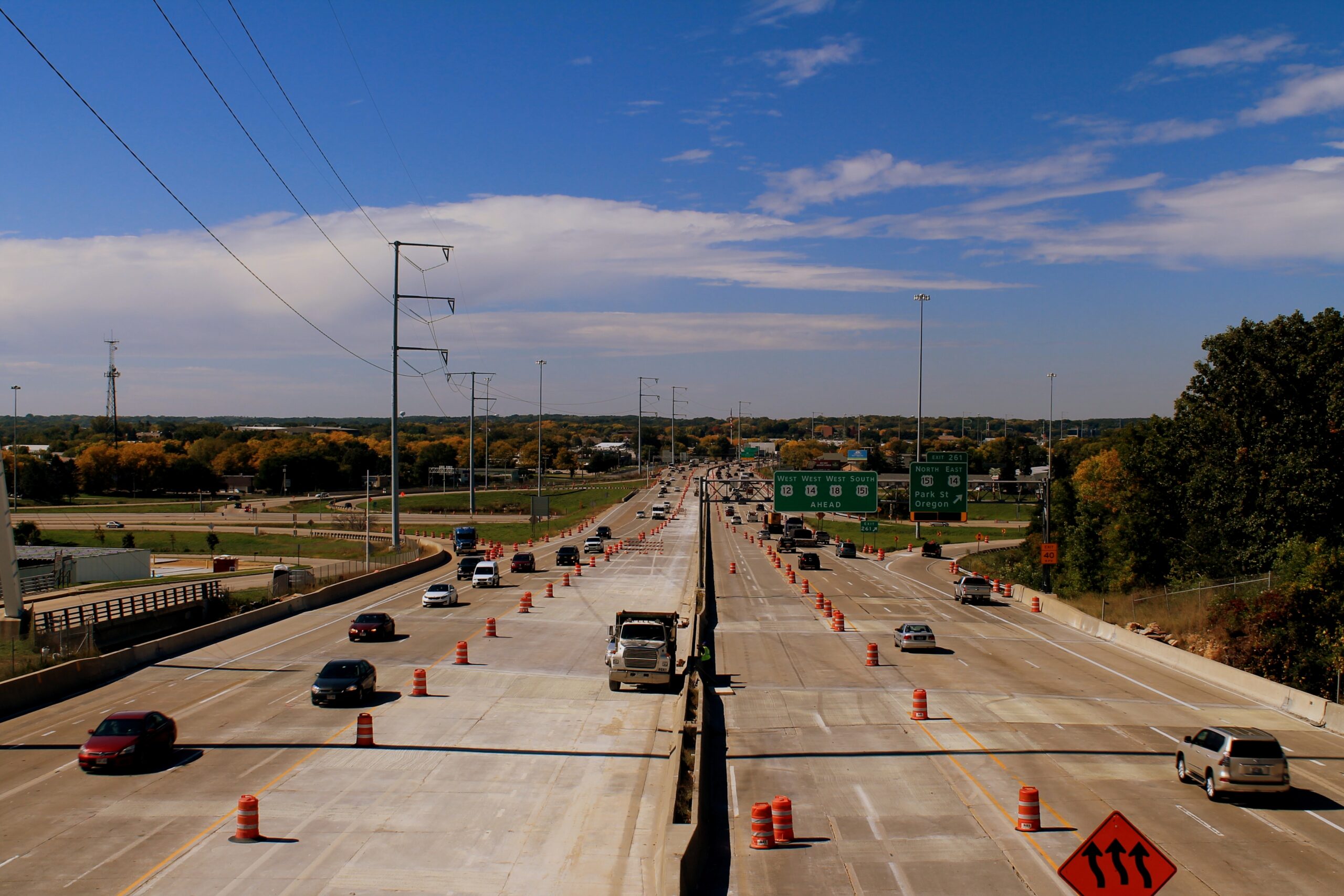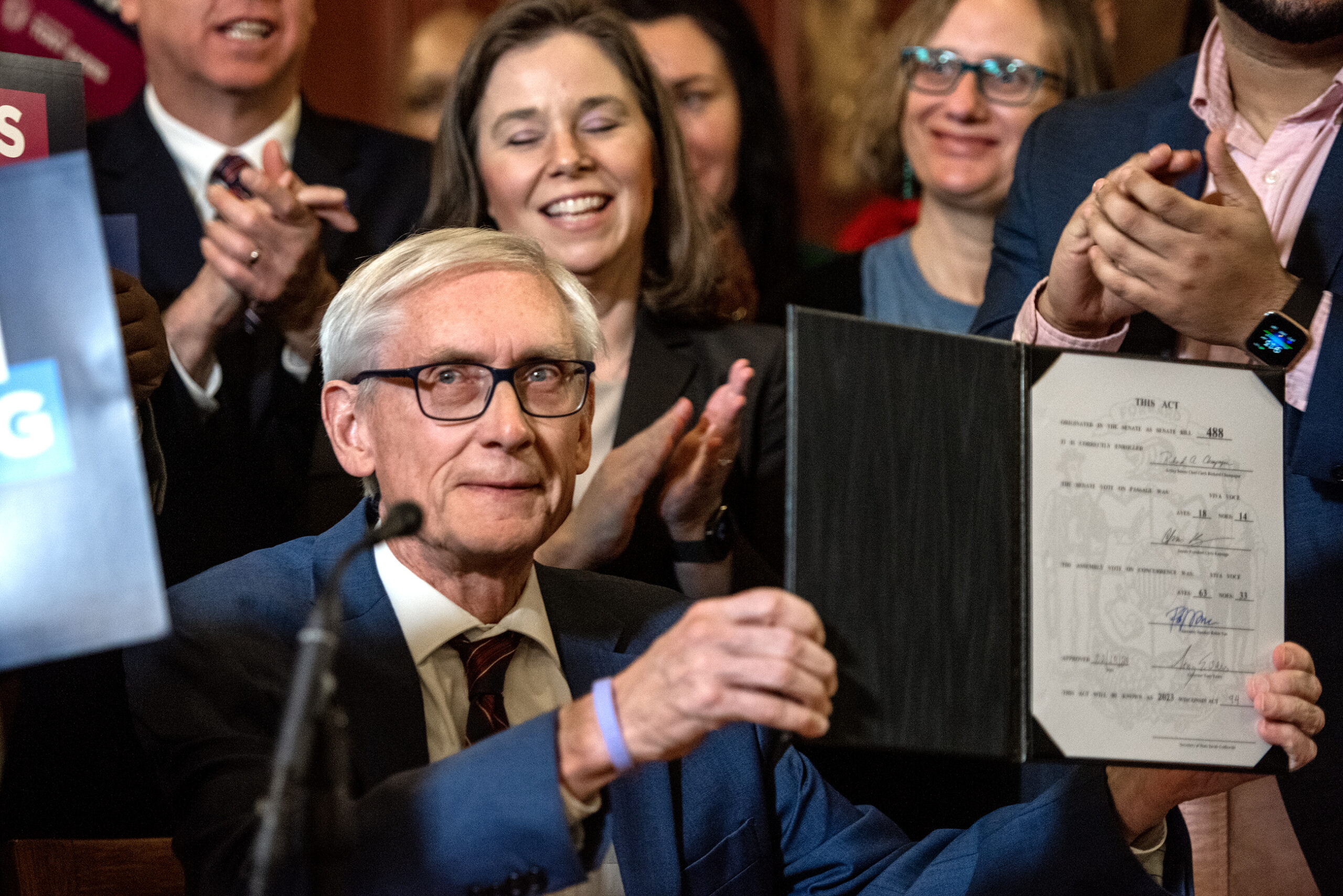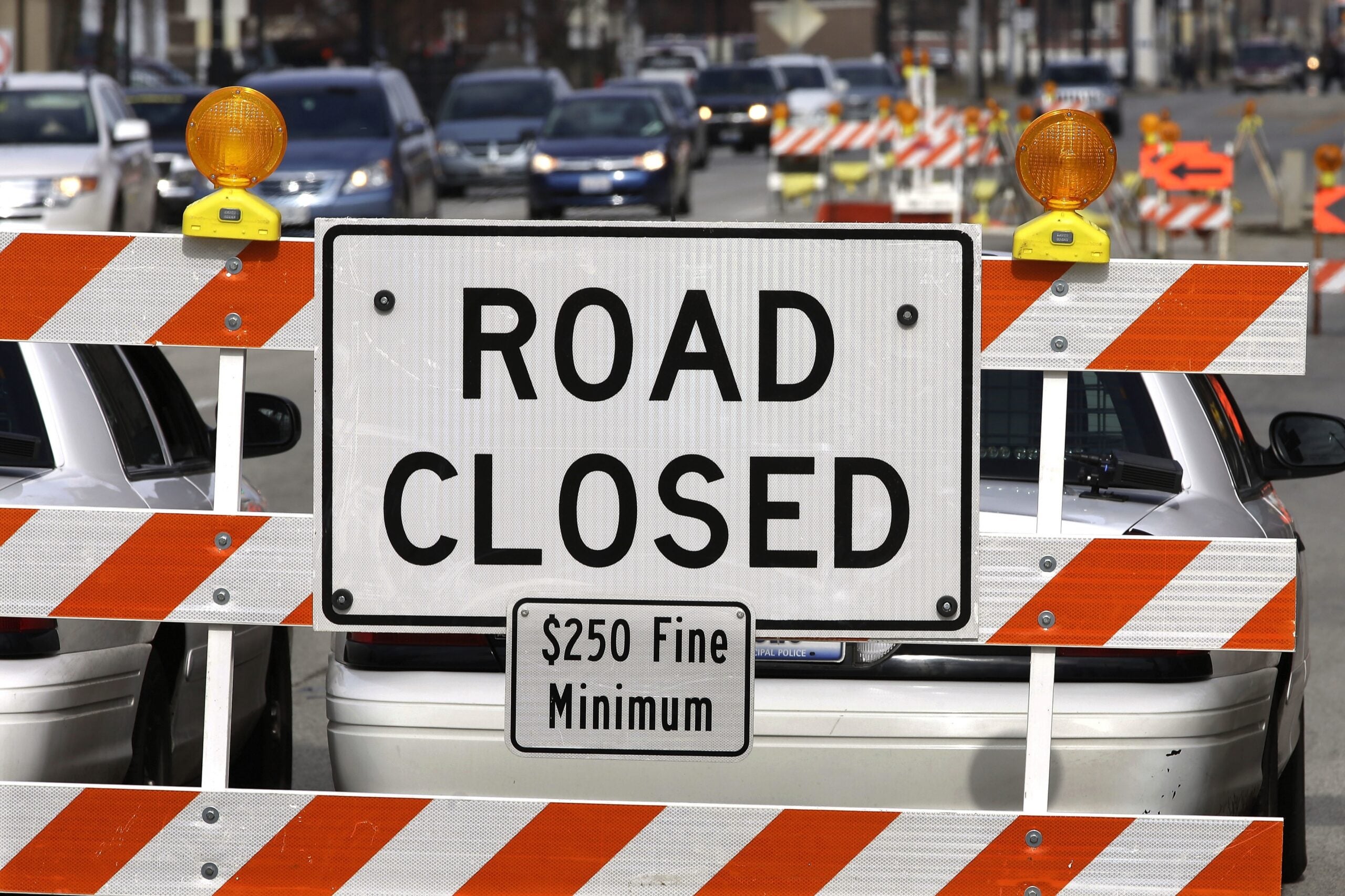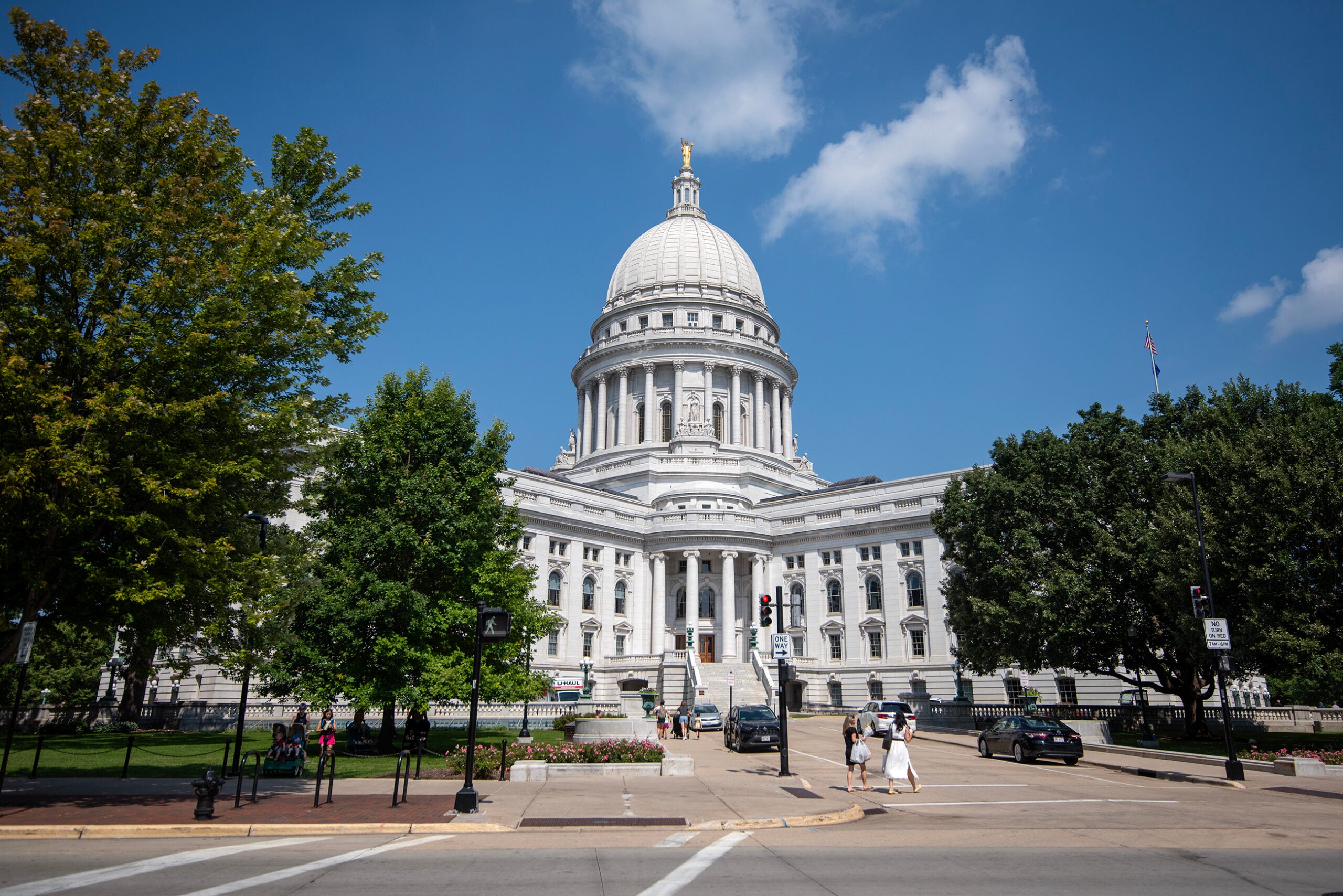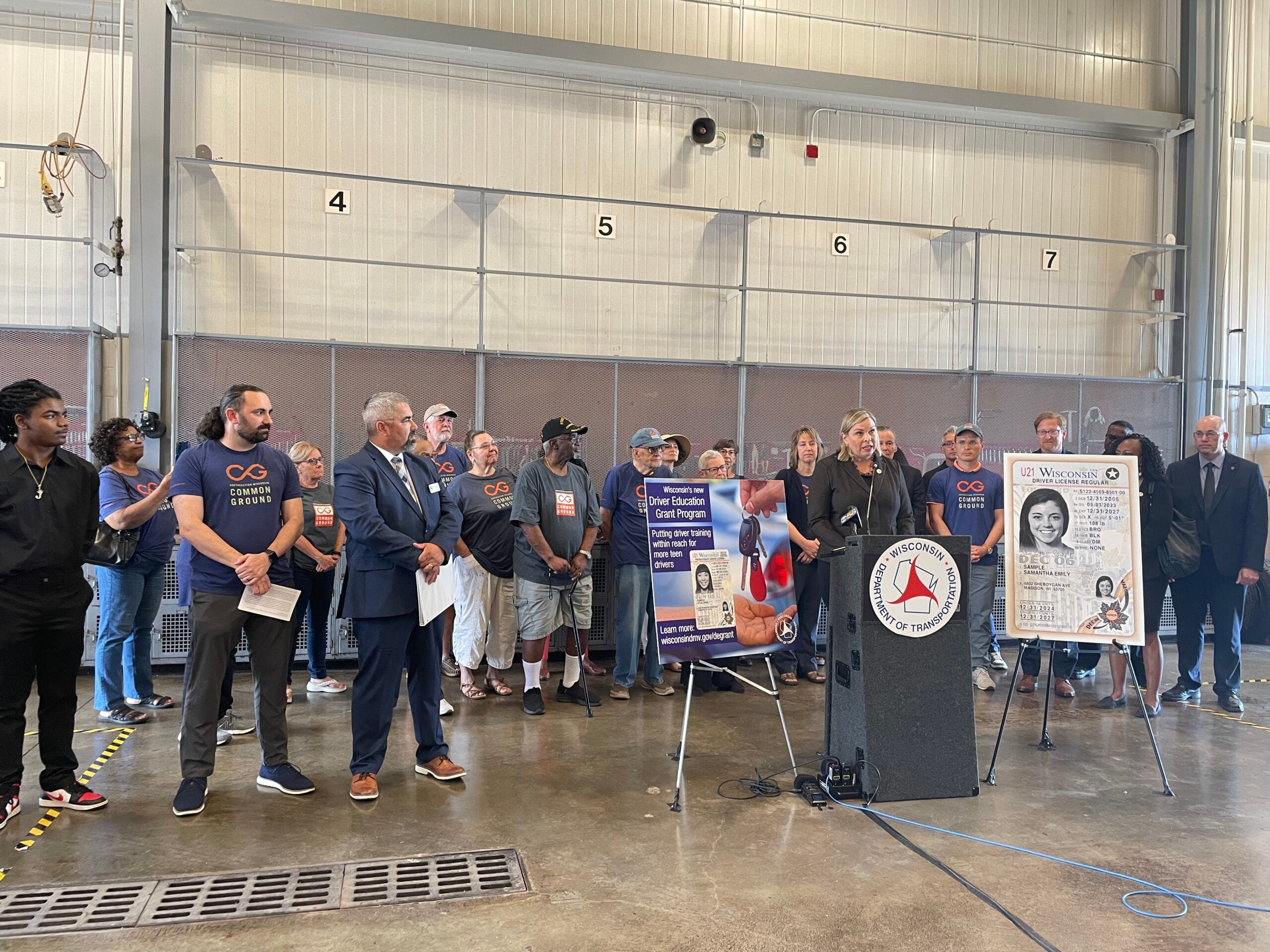After arguing over transportation funding for most of this year, Republican state senators are on the cusp of approving a state budget that would cut funding for major highway projects.
Not long ago there was a time when they might have increased the gas tax to prevent those cuts, but the idea never took hold in the Wisconsin Republican Party of today.
In September 1997, Wisconsin’s budget was two months late. One of the hang-ups was transportation funding.
News with a little more humanity
WPR’s “Wisconsin Today” newsletter keeps you connected to the state you love without feeling overwhelmed. No paywall. No agenda. No corporate filter.
A group of rank-and-file Republicans had blocked a gas tax increase in the contentious 1995 budget debate, but in 1997, GOP leadership cut a deal with Democrats to raise the gas tax by a penny.
“Obviously, that was not the Assembly Republican position, but that is the compromise proposal,” said then-Assembly Republican Majority Leader Scott Jensen, as he announced the deal to a roomful of his GOP colleagues.
While some Republicans grumbled, the gas tax passed overwhelmingly as part of that year’s budget.
Twenty years later, the budget is late again and lawmakers have spent months discussing road funding. But the similarities end there.
The Governor
Back then, Wisconsin was led by Republican Gov. Tommy Thompson, who still talks glowingly about the highways he added or expanded during his 14 years in office.
Thompson signed two gas tax increases into law and saw the gas tax go up another 11 times automatically because of Wisconsin’s indexing law, which has since been repealed.
Now, Wisconsin is led by Republican Gov. Scott Walker, whose first three budgets continued building, but also continued borrowing.
That led some lawmakers to insist that they wouldn’t vote for another budget unless it fixed the state’s long-term transportation issues.
It was against that backdrop that Walker issued a warning to lawmakers before even introducing his budget
“I will veto any changes made to the budget that add to the overall burden of the taxpayers of this state,” Walker told reporters during a news conference overlooking a construction zone along Interstate 39-90.
The DOT
At the time, Walker’s Department of Transportation Secretary was Mark Gottlieb, a former Republican lawmaker, civil engineer, and longtime advocate for increasing taxes or fees to pay for roads.
But just as the road funding debate was beginning to heat up, Gottlieb resigned, and Walker picked a replacement with a different worldview.
Former Superior Mayor Dave Ross was running the Department of Safety and Professional Services when Walker tapped him to be the new Transportation secretary.
The head of any agency only has so much power in setting an agenda, but Ross’ speech at a 2009 tea party rally in Madison hinted at how he viewed taxes.
“You know, I have a question for politicians,” Ross shouted. “How much of our money do you want?”
Ross revved up the tea party crowd when he said politicians lacked the backbone to balance budgets without raising taxes.
“What they want to do is they want to turn us into a state of tax slaves run by a ruling class of politicians who have forgotten that they are the peoples’ servants,” Ross said.
When Ross took over as transportation secretary in 2017, he said Wisconsin had a spending problem with roads, not a revenue problem.
The Groups
Twenty years ago, the state’s road building lobby more consistently got what it wanted. This year, however, the road builders came up short.
“It’s disappointing,” said Pat Goss, Director of the Wisconsin Transportation Builders Association.
Goss was a transportation policy advisor to Gov. Thompson in the 1990s. He said it used to be that both parties supported road funding to boost economic development.
“We have some people that are evidently moving away from that,” Goss said. “And it’s a shame.”
Today, the road builders find themselves at odds with the conservative group Americans For Prosperity.
AFP-Wisconsin director Eric Bott said his organization set up phone banks and knocked on doors to fight the gas tax.
“You know, legislators don’t do or not do something because I say so or my staff say so,” Bott said. “They do it because they hear from hundreds or thousands of their constituents back home.”
Bott said their efforts balanced out the road builders’ most aggressive lobbying push in years.
“They would have won 20 years ago,” said Bott. “What’s changed today is that there is far more information available to the average citizen.”
Asked whether Walker and today’s Republican legislature would ever agree to a long-term solution on road funding, Goss wasn’t sure.
“I think that’s a fair question,” Goss said.
He stressed that the next budget is nearly two years away, a period that will see major highway projects delayed.
“Roads get worse, citizens get angrier,” Goss said. “It’s always possible.”
The Legislature
With a legislature in flux, only 11 current legislators were serving the last time the state voted to raise the gas tax.
Sen. Steve Nass, R-Whitewater, was there. He voted against it.
Nass didn’t have a lot of company in 1997. The budget passed the Assembly 75-24 and passed the Senate 30-3.
But it was a different story this year when he fought the gas tax and won.
“This time it was clear I had help,” Nass said.
Nass said conservatives have more of a voice now because there are simply more of them in Wisconsin state government.
“Absolutely, no question,” Nass said. “And as more like-minded people come to the Senate, I think you’ll see a continuation of wanting to reform government.”
Lawmakers who wanted to increase taxes or fees for roads this year said they’re disappointed with the outcome. But they’re willing to fight that fight again two years from now.
Still, there’s little evidence to suggest that the Republican lawmakers, groups and governor who fought this gas tax hike would see the issue any differently in the next budget.
Wisconsin Public Radio, © Copyright 2026, Board of Regents of the University of Wisconsin System and Wisconsin Educational Communications Board.
